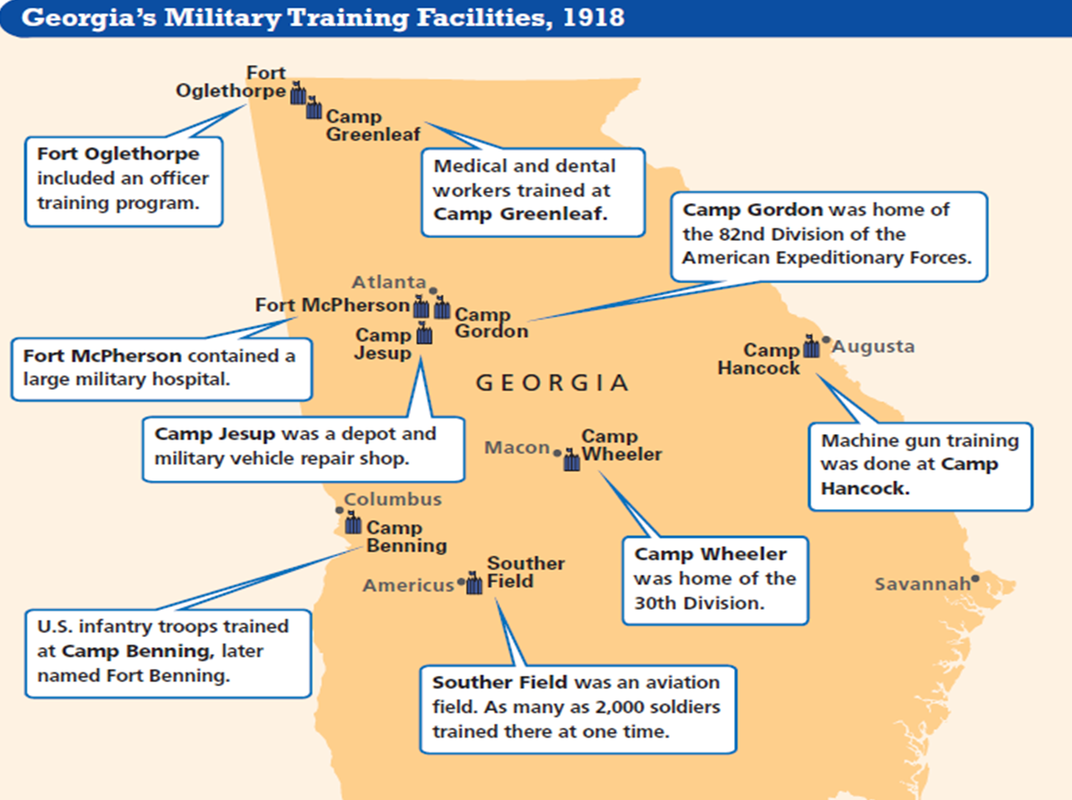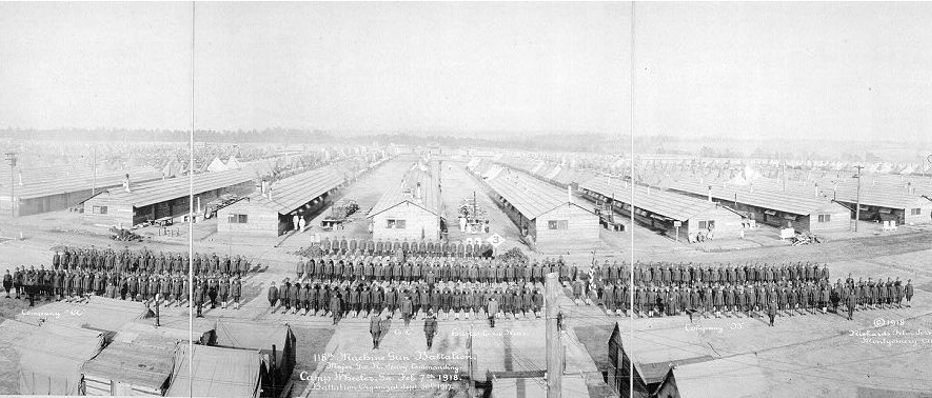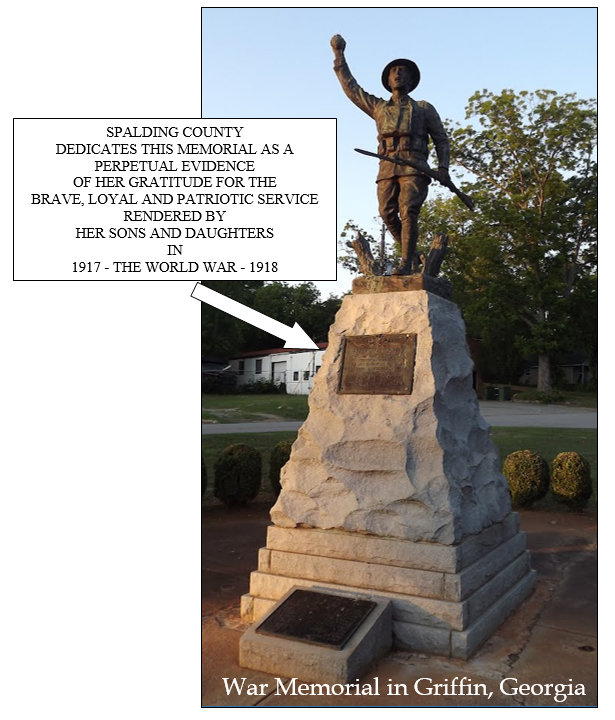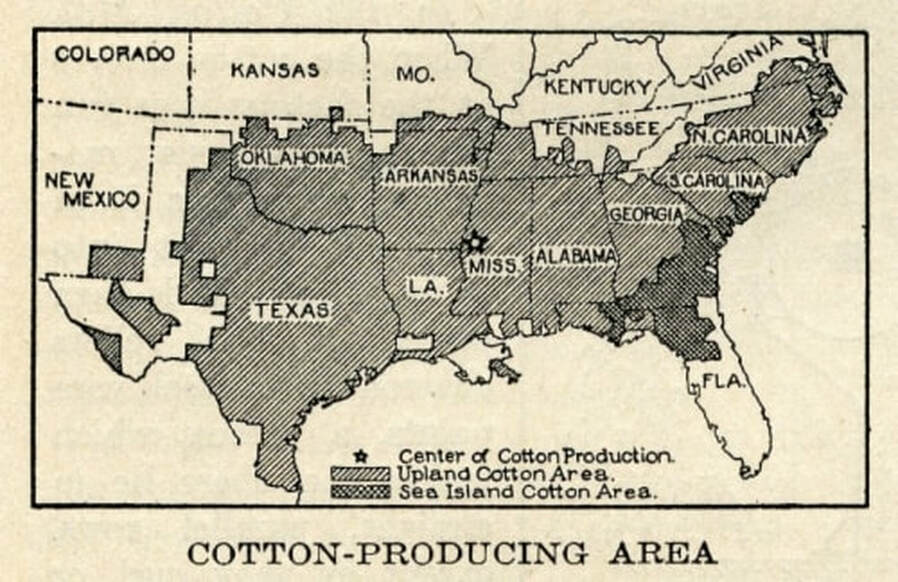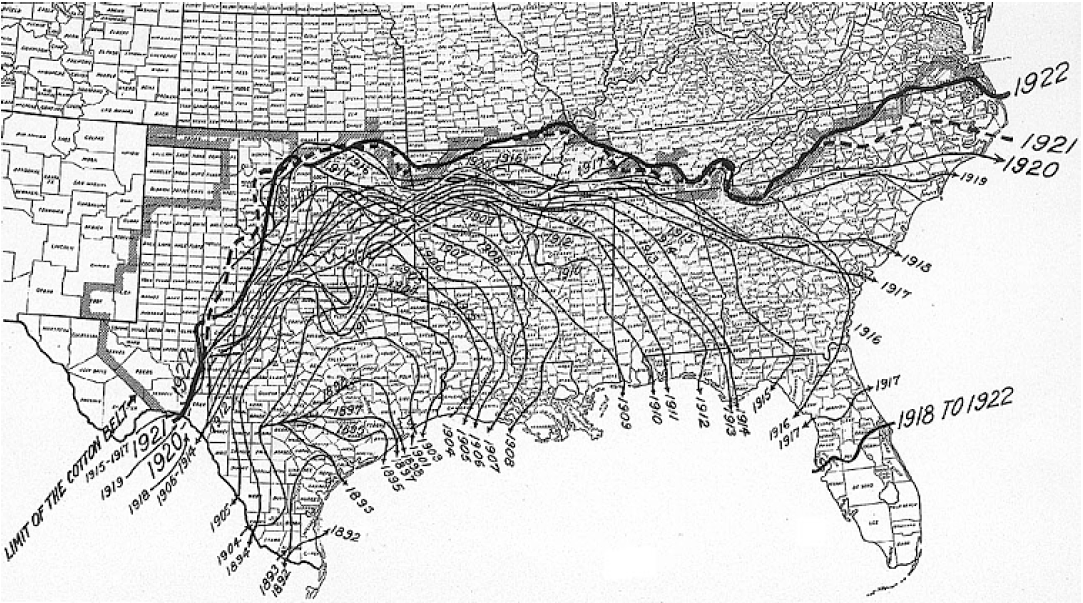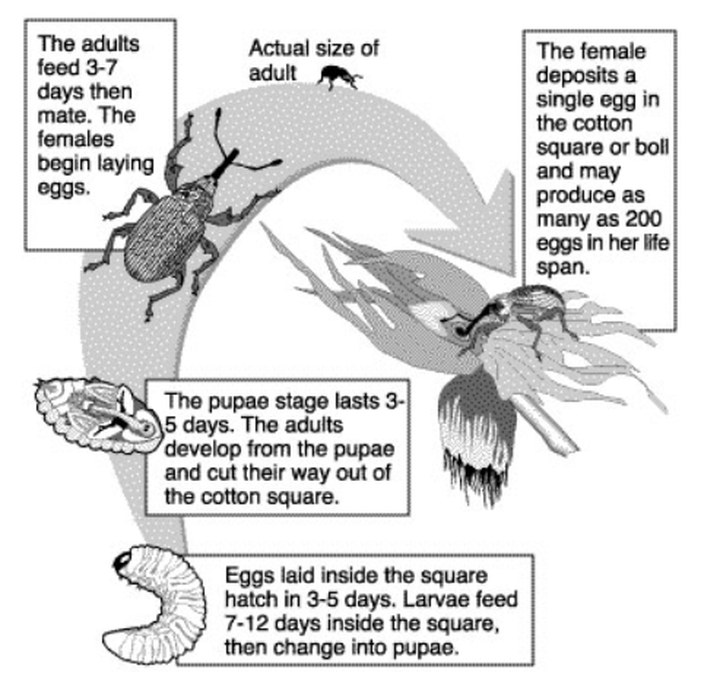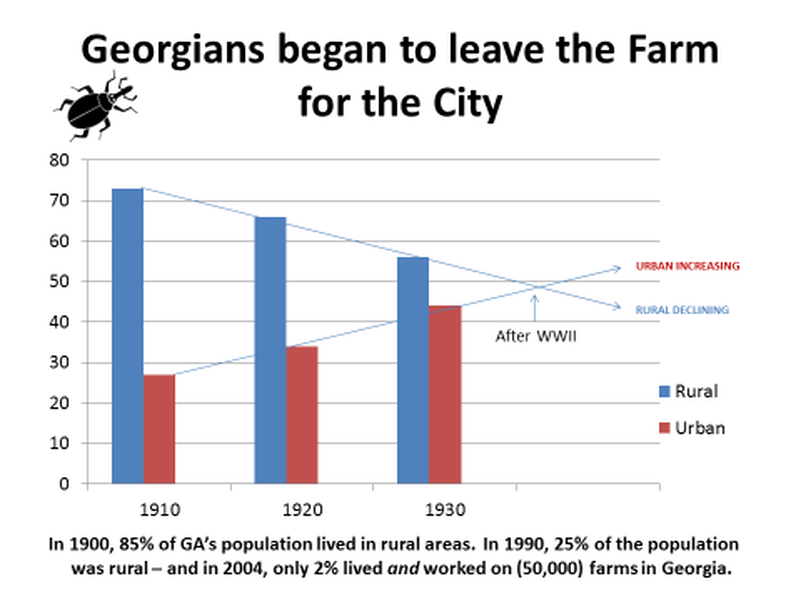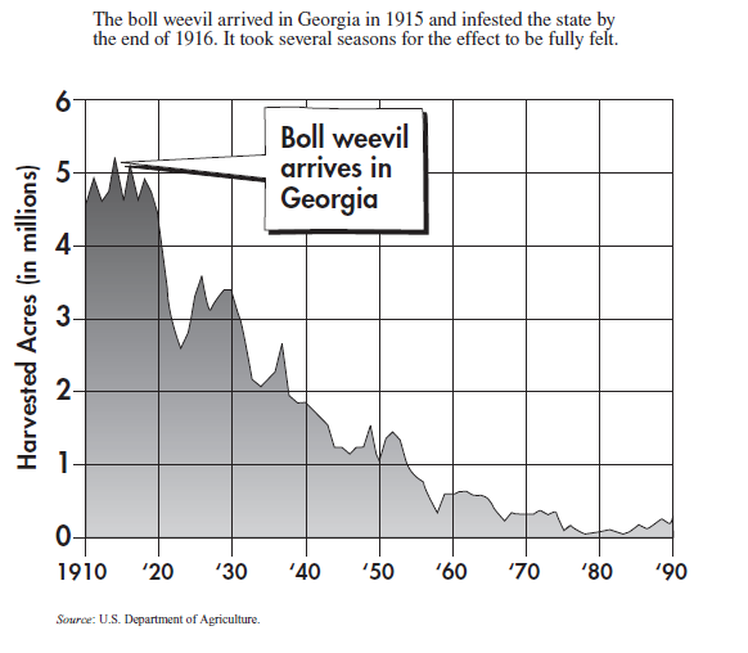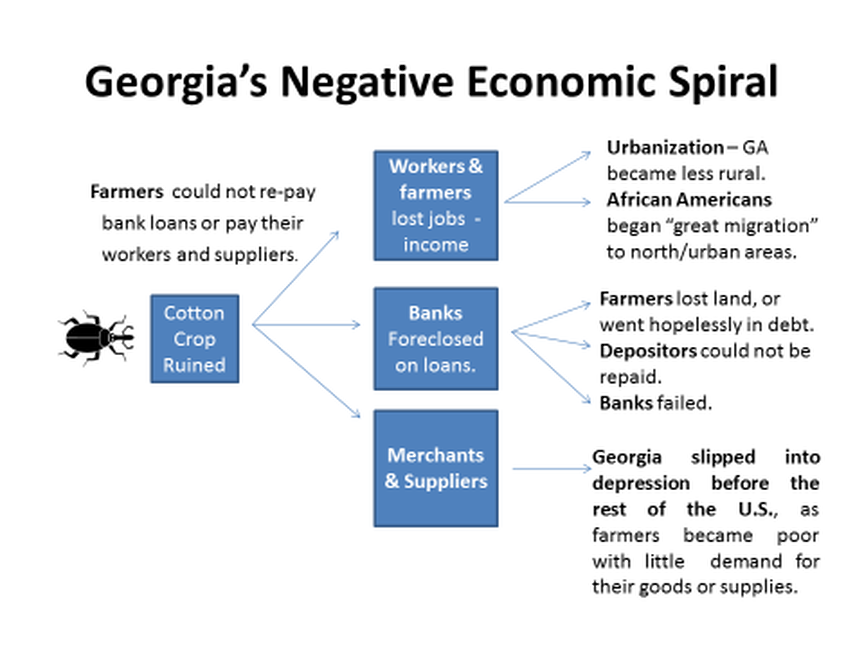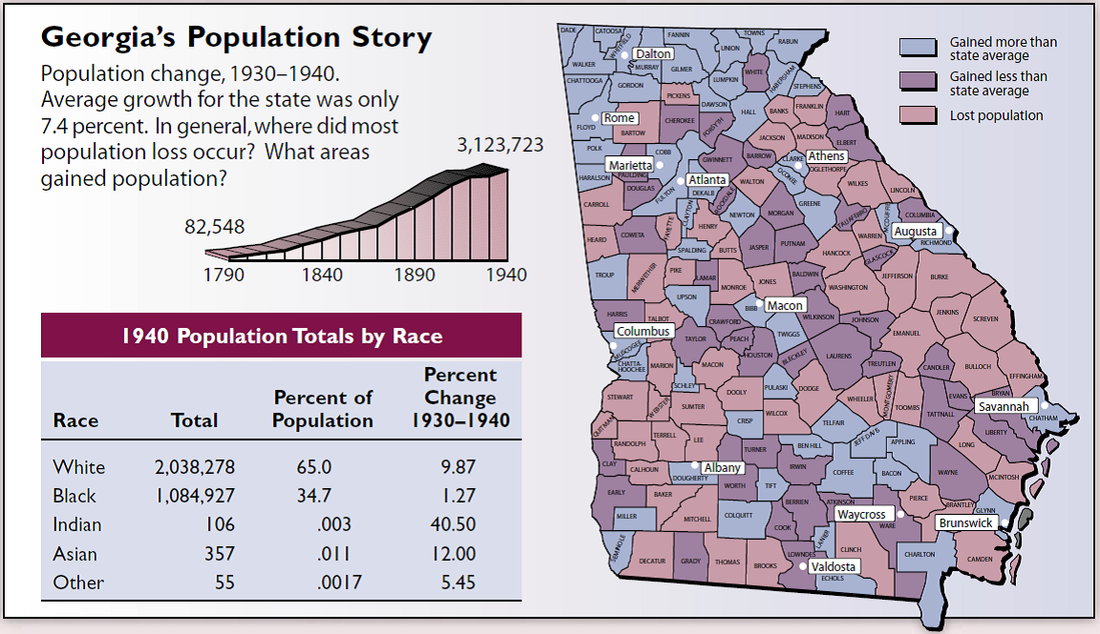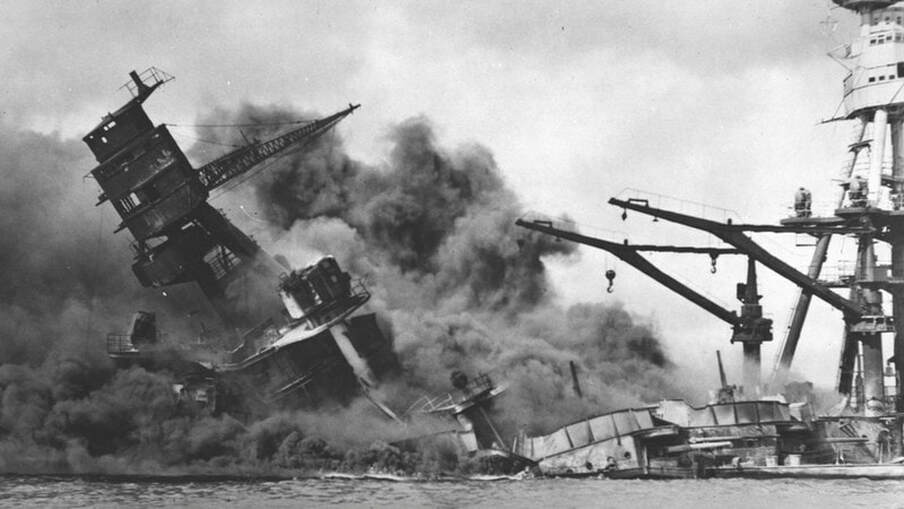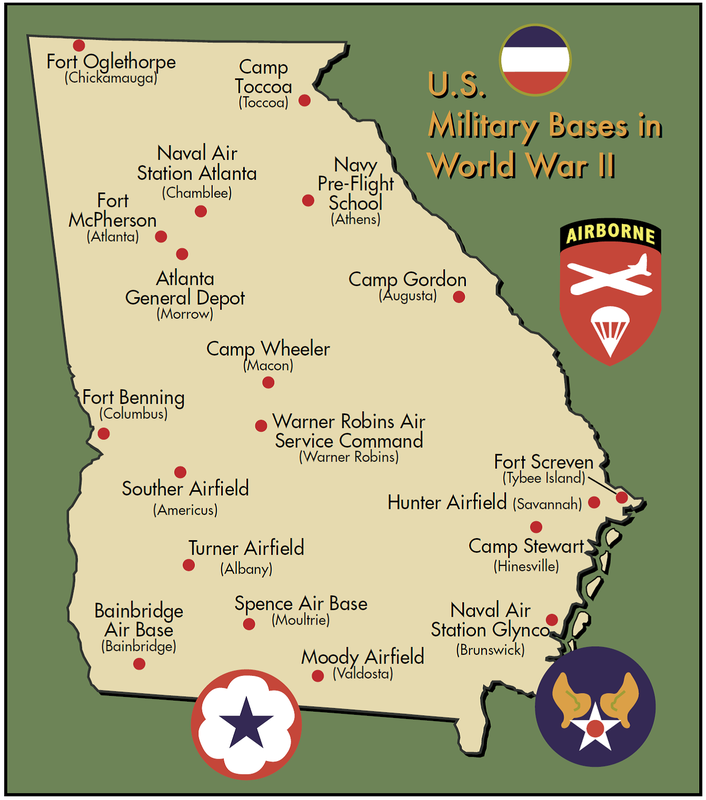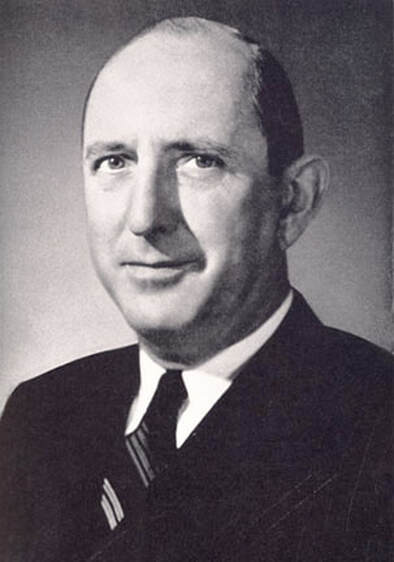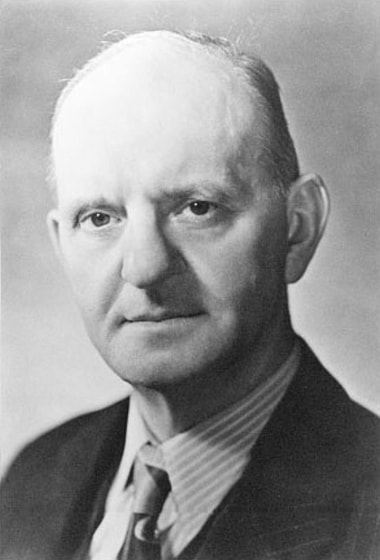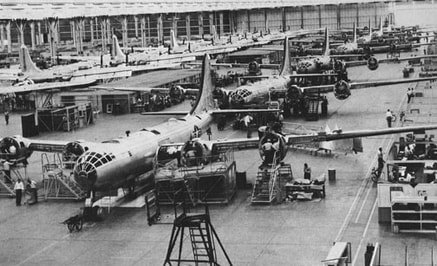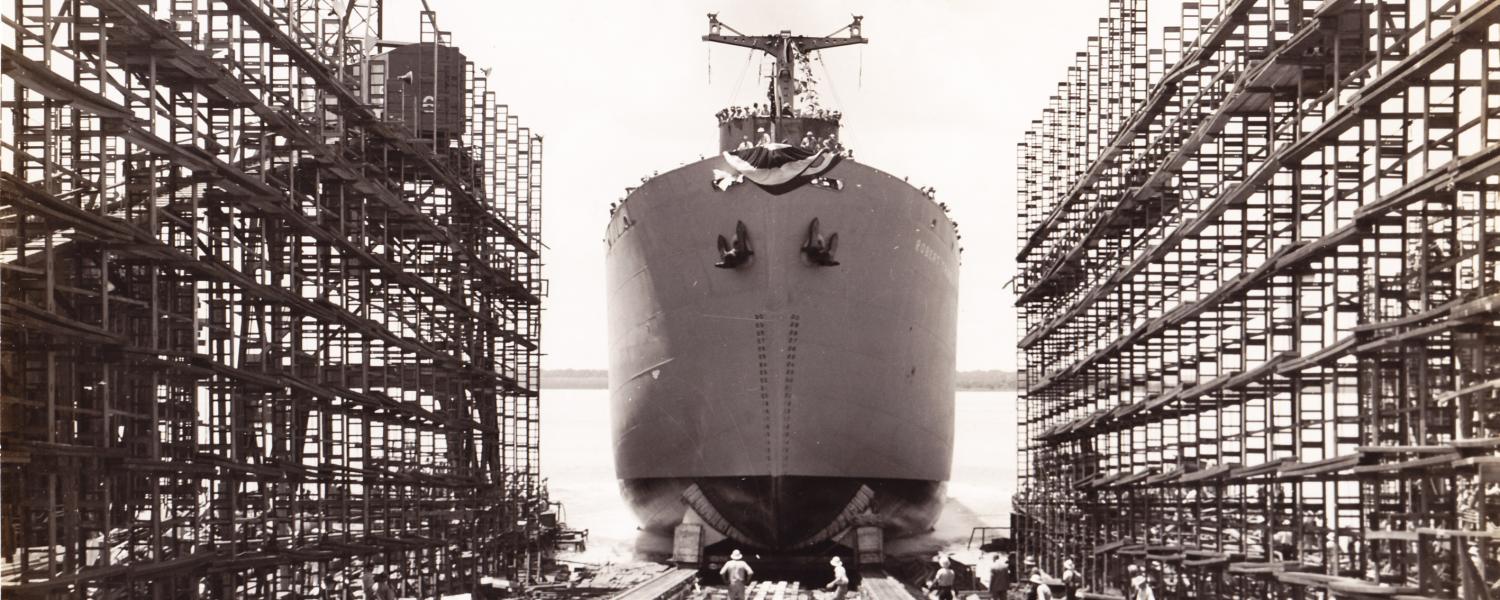Unit 10: Georgia Through Two World Wars
SS8H8- Analyze Georgia’s participation in important events that occurred from World War I through the Great Depression.
A. Describe Georgia’s contributions to World War I.
B. Explain economic factors that resulted in the Great Depression. (e.g., boll weevil and drought).
C. Describe Eugene Talmadge’s opposition to the New Deal Programs.
D. Discuss President Roosevelt’s ties to Georgia, including his visits to Warm Springs and his impact on the state.
E. Examine the effects of the New Deal in terms of the impact of the Civilian Conservation Corps, Agricultural Adjustment Act, Rural Electrification Administration, and Social Security Administration.
SS8H9- Describe the role of Georgia in WWII.
A. Describe key events leading up to American involvement in World War II; include the Lend-Lease Act and the bombing of Pearl Harbor.
B. Evaluate the purpose and economic impact of the Bell Bomber Plant, military bases, and the Savannah and Brunswick shipyards.
C. Explain the economic and military contributions of Richard Russell and Carl Vinson.
A. Describe Georgia’s contributions to World War I.
B. Explain economic factors that resulted in the Great Depression. (e.g., boll weevil and drought).
C. Describe Eugene Talmadge’s opposition to the New Deal Programs.
D. Discuss President Roosevelt’s ties to Georgia, including his visits to Warm Springs and his impact on the state.
E. Examine the effects of the New Deal in terms of the impact of the Civilian Conservation Corps, Agricultural Adjustment Act, Rural Electrification Administration, and Social Security Administration.
SS8H9- Describe the role of Georgia in WWII.
A. Describe key events leading up to American involvement in World War II; include the Lend-Lease Act and the bombing of Pearl Harbor.
B. Evaluate the purpose and economic impact of the Bell Bomber Plant, military bases, and the Savannah and Brunswick shipyards.
C. Explain the economic and military contributions of Richard Russell and Carl Vinson.
Georgia was the perfect place to train military personnel for the war effort because:
1. Warm climate allows year-round training
2. Network of railroad essential to transport troops and supplies
3. Proximity to ports allow quick transportation of troops to Europe.
1. Warm climate allows year-round training
2. Network of railroad essential to transport troops and supplies
3. Proximity to ports allow quick transportation of troops to Europe.
*Boll Weevil: First detected in 1913. The insect could destroy a field almost overnight. Over a 10-year period, cotton harvests fell to less than a third of what they had been in a normal year.
*Drought: The worst droughts of the century occurred in 1925. Farm families abandoned their farms.
*Drop in Cotton Prices: The price of cotton dropped from 35 cents a pound to 17 cents at the end of the war, when demand fell.
*Depression: With the onset of the Great Depression, cotton prices fell even more by 60 percent to 5 cents a pound.
*Drought: The worst droughts of the century occurred in 1925. Farm families abandoned their farms.
*Drop in Cotton Prices: The price of cotton dropped from 35 cents a pound to 17 cents at the end of the war, when demand fell.
*Depression: With the onset of the Great Depression, cotton prices fell even more by 60 percent to 5 cents a pound.
